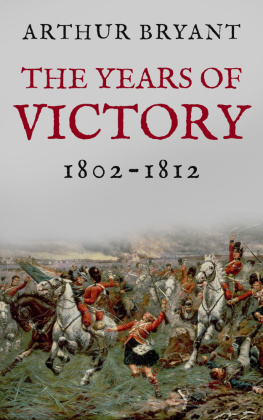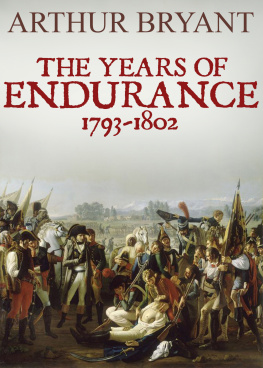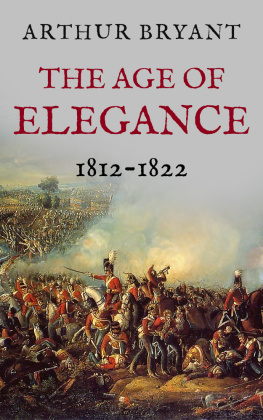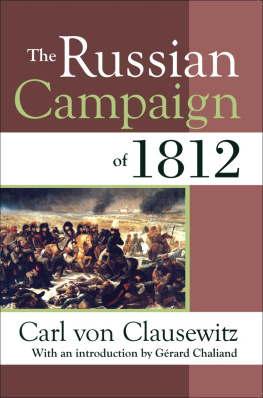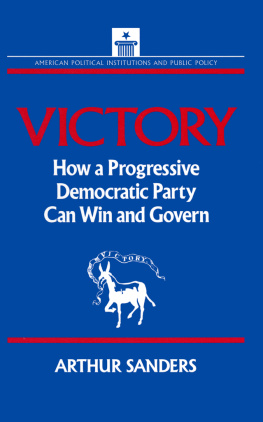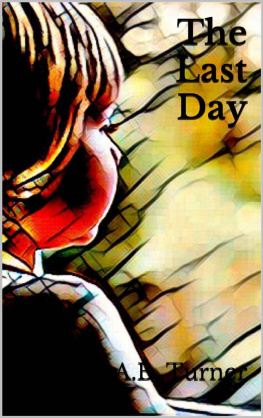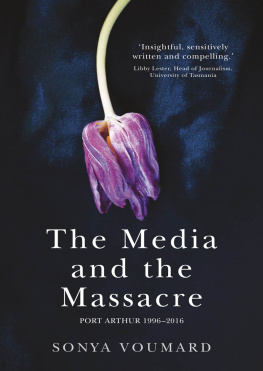The Years of Victory
1802 1812
Arthur Bryant
Arthur Bryant 1944
Arthur Bryant has asserted his rights under the Copyright, Design and Patents Act, 2001, to be identified as the author of this work.
First published in 1944 by Severn House Publishers Ltd
This edition published in 2014 by Endeavour Press Ltd
For Bernard Paget who, like John Moore, trained a British Army for Victory
If we are true to ourselves we need not mind Bonaparte.
Nelson
Table of Contents
Preface
I wrote The Years of Endurance the story of how England survived a flood which overwhelmed Europe when she was again alone, withstanding a worse and greater flood. I wrote it for the ordinary man who in this, as in other things, has been robbed of his heritage. The sequel tells how the British people triumphing in turn over appeasement, attempted invasion, Napoleons grand design to break their power at sea, the long enslavement of Europe and their own commercial isolation put a ring of salt-water round the tyrants dominion, slowly tightened it, and then, greatly daring, sent in their armies to assail his inner fortress. The events of 1939-45 made this old story, retold, strangely familiar.
Those who grew up in the long Victorian peace tended to see the Napoleonic Wars as a picturesque contest needlessly prolonged by reactionaries, who used it as a pretext to stifle reforms and persecute reformers. Long immunity from organised violence had a little blinded good men to the harsh realities of this world. They were not familiar, like their twentieth-century successors, with the tyrants bludgeon and the triumph of his blood-stained symbols. For the victory of their forebears had given them a peace and security till then unknown. Their historic vision was bounded by the sight of Pitt suspending Habeas Corpus and a Home Secretary hounding the pioneers of progressive movements. They could not see the stormy horizon beyond, the waves of invasion lapping our shores, the shadow of Giant Despair over an enslaved Europe.
Because we forgot our history we had to relive it. The British people in the Nineteen-Forties stood where their ancestors stood in Napoleons day. Like them I have therefore concentrated on the external struggle rather than on the grim internal revolution that accompanied it. With its attendant agrarian revolution the Industrial Revolution involved millions in misery and degradation. Yet though its products abundant arms, munitions and manufactured goods were one of the chief causes of Napoleons defeat, the social calamities to which it gave rise never weakened the British peoples will to resist. Then as now, it was their strength and weakness to concentrate on immediate essentials and avert their gaze as long as possible from impending evils. From 1793 till 1815 they grappled with the greatest military power known on earth and slowly wore it down. The magnitude of that achievement may explain, though it cannot excuse, the stubborn reverse of John Bulls qualities: the blind bigotry and mental rigidity of petty jacks-in-office which a generation earlier had alienated the American colonies and which turned a gallant soldier like Despard into a traitor and a great patriot like Cobbett into a rebel.
They died to save their country, and they only saved the world! I have left the aftermath of forgetfulness, disillusionment and wasted opportunity to a sequel in which the high-light will pass from the distant fleets and armies to England herself, labouring in the toils of a new and terrible birth. To that volume, as a glorious prelude, belong the final triumphs Salamanca, Vittoria, Waterloo when Britain was fighting in a grand coalition of European liberation. The victories recorded in these pages were won when she was alone, contending not against a failing foe but one in the plenitude of his strength. Their appropriate conclusion seems not the Prince Regent hiccoughing over his brandy with the Allied sovereigns in the peace-summer of 1814, but the hour when Wellington, after four years of struggle on his European beachhead, broke through the frontier fortresses and poured into a resurgent Spain. At that moment, driven to it by British persistence and blockade, Napoleon, in a last desperate attempt to break out of Englands grip, signed the fatal orders for his own death-march on Moscow. Russian heroism and cold, the unsuspected speed and striking-power of Wellington on the offensive, and the fury of the German War of Liberation had still to complete his downfall. Yet ahead, on the stony tracks of Spain and the plains of Europe, lay victory after victory, till the French, gripped in a contracting circle of ocean, sierra and steppe, rolled back from Moscow and Madrid, from Dresden and Burgos, from the Rhine and the Pyrenees, into the streets of Paris and the shades of Fontainebleau.
*
I have made no attempt to minimise the horrors and miseries of war. I am writing for a generation that knows its ugly face too well. The road to Victory and the human future passes between the bodies of those who die to win it. But I have tried, without underlining them, to draw wars lessons: the unchanging truths of human character and geography, of success and failure in battle, and of the underlying moral forces which govern Mans nature in action. Every phase of our own struggle made these clearer. We too have had to contend, before we understood its nature, with untrammelled passion in great place; have had to wrestle with it single-handed until the world was ready to fight by our side; have faced imminent invasion and seen its peril pass; have fought remote battles in desert and mountain whose purpose was hidden at the time but whose instinctive object was to hold the enemy in at all costs until the power of his lawless energy was expended.
The strategy of Britain is always dictated by her geographical position. She has to hold, then to contract, and finally to penetrate, a ring. She has to operate from exterior lines against a foe with the advantage of interior: a foe, moreover, who at first enjoys by virtue of superior arms the asset of the initiative. She has, therefore, by valour and endurance to hold his attacks until she has gained the strength to strike back: like a man with bare and bleeding feet fighting a booted adversary for time to get his own boots on. That pause England gains by sea-power and the defence of the land-bases which enable her to exercise such power. The native stubbornness of her people the reverse of their initial complacency and unpreparedness here stand her in good stead; it is your Britons virtue that, when heels have to be dug in, he digs his in as deep as any man in the world. Later, because three-quarters of the worlds surface is sea and this is as true in the days of the aeroplane and carrier as in those of the sailing-ship Britain and her allies are able to turn the strategic tables of interior lines. For, once she had gained whether by Trafalgar or by victory over Condor and U-boat complete command of the worlds sea-lanes, she could move her forces on interior salt-lines more quickly than her foe could do along the water-broken land surfaces of the globe. In her Salamancas and Alameins Britain appears to be striking from the outside of a circumference: to be operating from long lines of communication against an enemy with short. But in reality her own supply-lines, being water-borne, are swifter and more economical than those of her earth-bound foe. She is Ariel to his Caliban.
The further Britain fights from the centre of her enemys position the truer this becomes. In the early stages of her wars, when her adversary is very powerful and therefore territorially extended for a Napoleon or a Hitler will always march as far as he can it is surprising with what numerically weak forces England has been able to contain him because of the elasticity of her sea communications. Wavell and OConnors campaign in the winter of 1940 was a classic example of this. So was Moores before Corunna. Fighting from the seas edge at the direct termini of interior ocean-lines, Britain was able to make a little go a long way.

